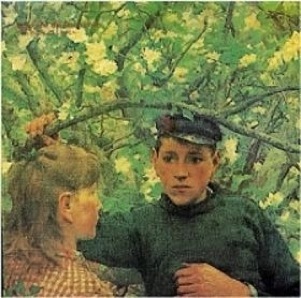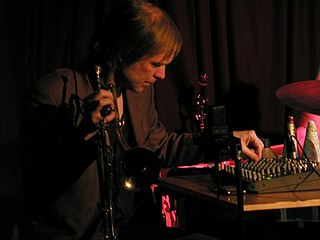Related Research Articles
Christian Petzold was a German composer and organist. He was active primarily in Dresden, and achieved a high reputation during his lifetime, but his surviving works are few. It was established in the 1970s that the famous Minuet in G major, previously attributed to Johann Sebastian Bach, was in fact the work of Petzold. The sprightly melody was used in the 1965 pop music hit "A Lover's Concerto" by the American group The Toys.
"(There's) Always Something There to Remind Me" is a song written by American songwriting duo Burt Bacharach and Hal David. Originally recorded as a demo by Dionne Warwick in 1963, "(There's) Always Something There to Remind Me" first charted for Lou Johnson, whose version reached No. 49 on the Billboard Hot 100 in mid-1964. Sandie Shaw took the song to No. 1 in the UK that same year, while the duo Naked Eyes had a No. 8 hit with the song in the US two decades later in 1983.

The Minuets in G major and G minor, BWV Anh. 114 and 115, are a pair of movements from a suite for harpsichord by Christian Petzold, which, through their appearance in the 1725 Notebook for Anna Magdalena Bach, used to be attributed to Johann Sebastian Bach. These minuets, which are suitable for beginners on the piano, are among the best known pieces of music literature. The 1965 pop song "A Lover's Concerto", of which millions of copies were sold, is based on the first of these Minuets.

"The Back of Love" is a single which was released by the English rock band Echo & the Bunnymen on 21 May 1982. It reached number nineteen on the UK Singles Chart the same month. It was subsequently added to the band's third studio album Porcupine which was released on 4 February 1983.

Nina Hoss is a German stage, film and television actress. She is known for her collaborations with director Christian Petzold in films such as Barbara (2012) and Phoenix (2014). In addition, she also performed roles in The White Masai (2005) and The Audition (2019), and Pelican Blood (2020). She has also starred in the American TV series Homeland (2014–2017), The Defeated (2020), and Jack Ryan (2022).

The Grimme-Preis is one of the most prestigious German television awards. It is named after the first general director of Nordwestdeutscher Rundfunk, Adolf Grimme. It has been referred to in Kino magazine as the "German TV Oscar".

Angela Schanelec is a German actress, film director and screenwriter.
Christian Petzold may refer to:

Christian Petzold is a German film director and screenwriter. Petzold is part of the 21st century Berlin School film movement. His films have received international recognition and acclaim. He is known for his frequent collaborations with actresses Nina Hoss and Paula Beer. Petzold won the Silver Bear for Best Director for his film Barbara (2012) at the 62nd Berlin International Film Festival.

Barbara Auer is a German actress. She has appeared in multiple television shows and films including My Daughter Belongs to Me, Impossibly Yours, Waiting for Angelina, and The Book Thief.

Gespenster is a 2005 German film directed by Christian Petzold. Petzold also cowrote the screenplay with Harun Farocki. The film was presented at the 2005 Berlin International Film Festival, where it was officially entered into competition.

Barbara is a 2012 German drama film directed by Christian Petzold and starring Nina Hoss. The film competed at the 62nd Berlin International Film Festival in February 2012, where Petzold won the Silver Bear for Best Director. The film was selected as the German entry for the Best Foreign Language Oscar at the 85th Academy Awards, but it did not make the shortlist.
Lisy Christl is a German costume designer.
Berlin School is a term used for a new movement in German films that has emerged in the early 21st century. The German term Berliner Schule has been applied to a number of intimate German films that received critical acknowledgement, first in France.

Phoenix is a 2014 German drama film directed by Christian Petzold. Loosely adapted from the 1961 novel Le Retour des Cendres by French author Hubert Monteilhet, the film stars Nina Hoss and Ronald Zehrfeld as Nelly and Johnny Lenz, respectively.

Ronald Zehrfeld is a German actor. His movie roles include Barbara (2012), Inbetween Worlds (2014), and Phoenix (2014).

Axel Dörner is a German trumpeter, pianist, and composer.
Harald Petzold is a German politician from The Left.

The Widow's Ball is a 1930 German comedy film directed by Georg Jacoby and starring Lucie Englisch, Fritz Kampers, and Sig Arno.
"Lob Gott getrost mit Singen" is a Lutheran hymn in German, a paraphrase of the Latin Te Deum, by the Bohemian Brethren. The hymn is part of the current Protestant hymnal. The hymn was translated into English as "Praise God, praise God with singing". The hymn tune was used for several hymns in different languages, denominations and centuries.
References
- ↑ Jaimey Fisher (15 November 2013). Christian Petzold. University of Illinois Press. pp. 60–67. ISBN 978-0-252-09523-8.